Polystyrene is a common plastic material widely used in various everyday products, such as plastic cups, containers, and toys.
However, as public awareness of health and environmental issues grows, more and more people are beginning to question the safety of polystyrene materials.
So, is polystyrene safe? Is it toxic?
In fact, polystyrene is generally considered safe under normal use conditions, but it may release harmful substances when exposed to high temperatures or acidic or alkaline environments.
In the following text, let’s explore the reasons behind this together!
What Is Polystyrene?
Polystyrene (abbreviated as PS) is a polymer synthesized from styrene monomer through a free-radical addition reaction, with the chemical formula (C8H8)n.
PS generally has a head-to-tail structure, with a saturated carbon chain backbone and conjugated phenyl rings as side groups, resulting in an irregular molecular structure that increases the rigidity of the molecules, making PS a non-crystalline linear polymer.
Due to the presence of benzene rings, PS has a glass transition temperature higher than 100°C (typically 80-82°C), making it transparent and hard at room temperature.
The rigidity of the molecular chains makes it prone to stress cracking.
Therefore, it is often used to manufacture various disposable containers that need to withstand the temperature of boiling water, as well as disposable foam lunch boxes.
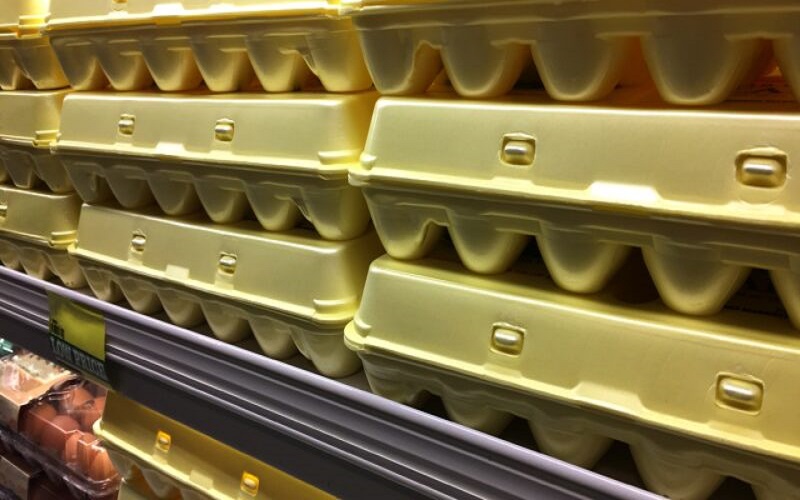
Compositional Safety Of Polystyrene Material
Polystyrene is a synthetic aromatic polymer made from the monomer styrene, with each styrene unit comprising a benzene ring (an aromatic hydrocarbon) and an ethylene group.
Although styrene monomer is a known carcinogen, its chemical structure becomes stable after polymerization, making it difficult to degrade at room temperature.
Thus, under normal use conditions, polystyrene is generally considered non-toxic.
However, under high temperatures, polystyrene may decompose and release styrene monomer, which can potentially impact the human nervous and immune systems.
Therefore, while styrene imparts excellent properties to polystyrene plastics, it also introduces potential safety hazards.
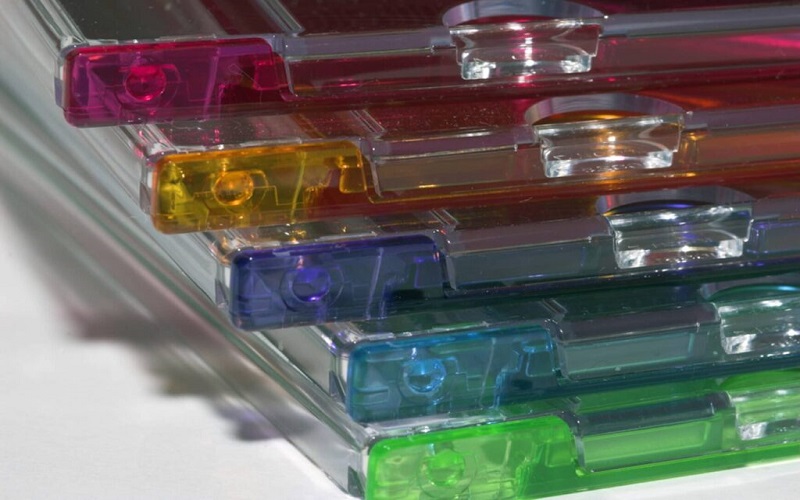
Polystyrene Safety In Manufacturing Processes
Due to its excellent processing capabilities, PS plastic is widely used in various manufacturing processes such as injection molding, extrusion, and foam molding.
However, during polystyrene molding and extrusion , the material needs to be heated to high temperatures, which can lead to the release of unreacted styrene monomer.
Styrene is a known volatile organic compound that has been classified as a possible human carcinogen by the International Agency for Research on Cancer (IARC).
Prolonged or high concentration exposure may pose a health threat to workers, thus it is essential for injection molding companies to maintain efficient ventilation systems to reduce health risks for their employees.
Additionally, to enhance the performance of the final products, plastic additives such as flame retardants and plasticizers may be added during the production process.
These additives can contain chemicals harmful to human health. Therefore, consumers should carefully check the composition of PS plastic products to ensure they meet national and international safety standards, such as ISO and FDA certifications.
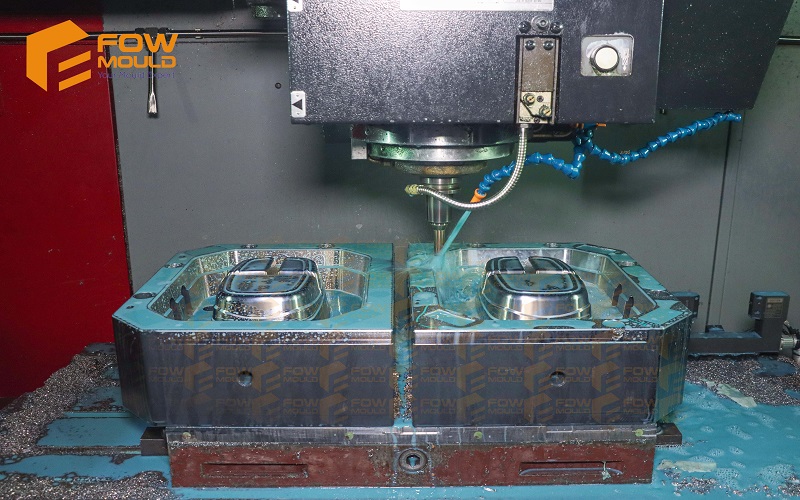
Is Polystyrene Microwave Safe?
Polystyrene foam is widely used in food packaging, especially for disposable utensils, coffee cups, and food containers, attracting significant consumer attention regarding its safety, particularly when handling hot foods or beverages.
In the United States, the Food and Drug Administration (FDA) has set safety standards for polystyrene in food contact applications, including ensuring that the residual styrene levels are below strict safety thresholds.
Under these guidelines, styrofoam is deemed safe for food grade plastics.
However, it is important to note that when polystyrene foam is used to contain foods high in fats and heated in a microwave, the polystyrene can decompose at high temperatures and migrate into the food, posing health risks.
Additionally, it is not advisable to use polystyrene to contain highly acidic substances (like orange juice) or strong alkaline materials, as it can decompose under these conditions, releasing harmful substances and increasing cancer risks.
Overall, polystyrene is relatively safe for food packaging at room temperature, but it is unsafe to use in microwaves or to contain strong acids or bases, unless it is labeled as microwave-safe.
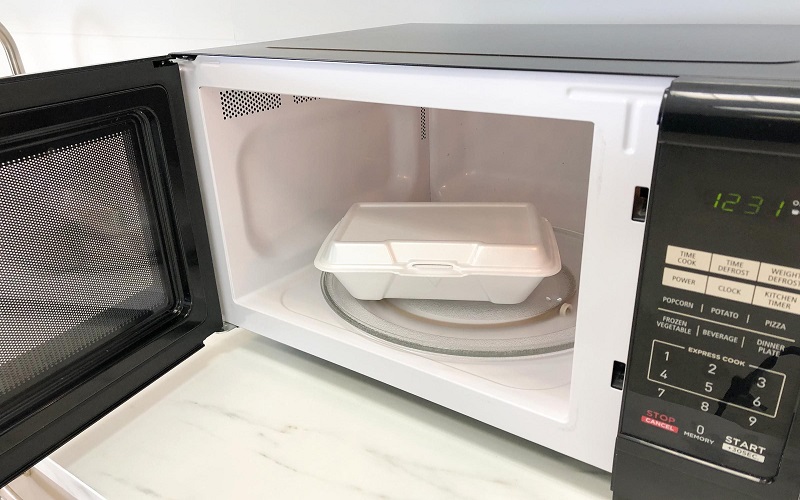
Is Polystyrene Harmful To Human Health?
As awareness of human health continues to grow, concerns about the safety of plastic products are increasingly prevalent.
Thus, the question “Is polystyrene toxic?” has sparked widespread discussion.
Polystyrene itself, being a chemically stable polymer, typically does not decompose or release harmful chemicals under normal conditions.
However, when subjected to high temperatures or acidic or alkaline conditions, it can decompose and release substances such as benzene and styrene, which are harmful.
Such conditions may lead to health issues like cancer and neurological disorders, particularly posing severe risks to children and those with weakened immune systems.
Although polystyrene plastic is safe and harmless under normal conditions, it may pose a health risk at high temperatures or in strong acidic and alkaline environments.
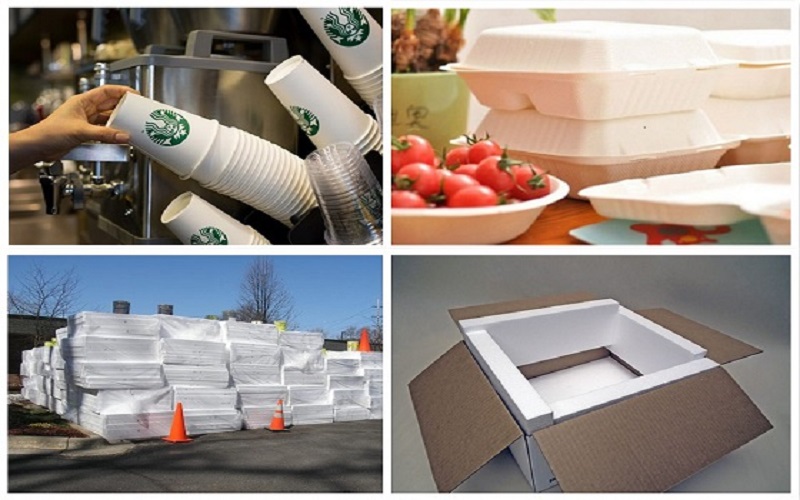
Environmental Impacts Of Polystyrene Plastic
Due to its high molecular weight and structural stability, polystyrene is generally considered non-degradable.
Discarded polystyrene products often break down into tiny particles, becoming microplastics that are ingested by wildlife or marine organisms, thus entering the food chain and posing risks to ecosystems and human health.
As polystyrene degrades in the environment, it may release chemicals such as styrene.
Styrene is a potentially toxic substance, and long-term exposure can threaten both ecosystems and human health.
Additionally, the recycling rate for polystyrene is relatively low, and if incinerated, it can emit harmful air pollutants such as benzene and other volatile organic compounds, further exacerbating environmental pollution issues.
Therefore, polystyrene plastics have a significant negative impact on the environment, posing multiple safety threats.
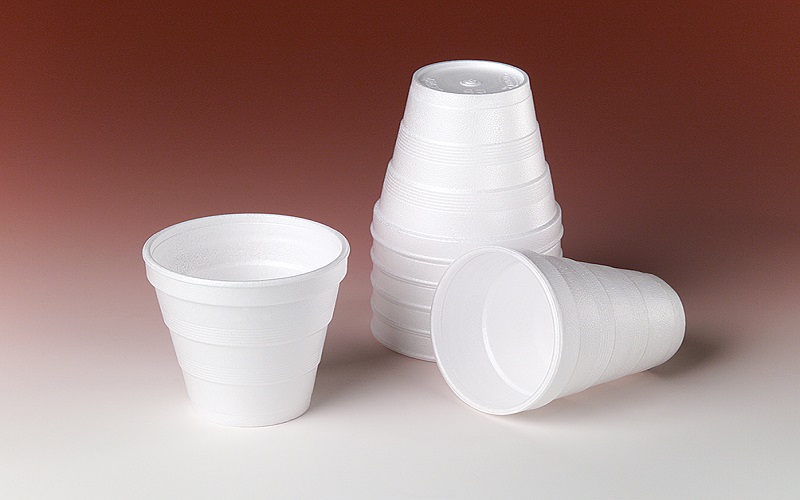
Is Polystyrene Recyclable?
In plastic recycling symbols, the number “6” is commonly used to identify polystyrene materials, but in reality, recycling PS plastic faces several challenges.
Many local recycling systems have not fully adapted to recycling polystyrene, and the costs associated with its recycling are relatively high.
These factors lead many recyclers to be unwilling to accept polystyrene.
Additionally, polystyrene is not easily biodegradable, and if not properly handled, it can remain in the environment for a long time, causing environmental issues.
Given these circumstances, although polystyrene is theoretically recyclable, there are many practical difficulties in actual operations.
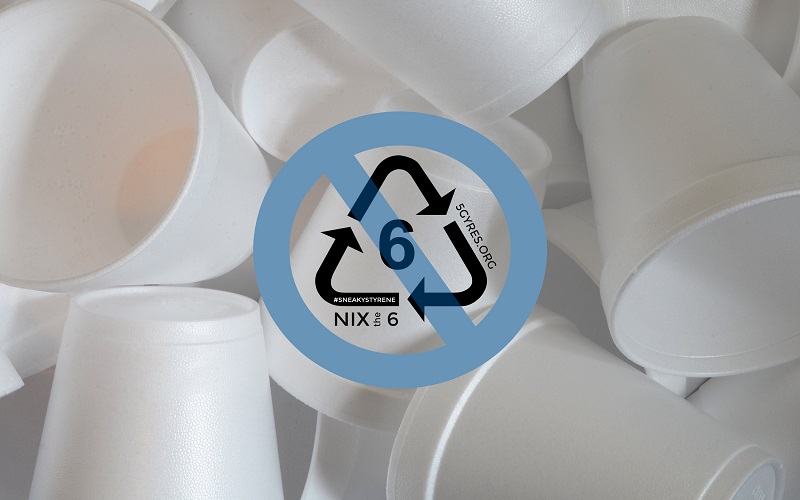
Comparison of The Safety Of Polystyrene And Other Plastics
In the article “Is Polycarbonate Safe?” we learn that the safety of PC plastic has been controversial due to the issue of Bisphenol A (BPA).
BPA can be released under high temperatures, potentially impacting human health, particularly posing risks to the development of infants and young children.
Compared to polycarbonate containing BPA, polystyrene does not contain other harmful components, but it can decompose and release styrene when exposed to high temperatures or strong acids and bases.
In the comparison between Polypropylene vs Polystyrene, PP material has better heat resistance and chemical stability, and is easier to recycle, generally considered safer than polystyrene.
Below is a comparison data table of these three materials:
Performance Indicator | Polypropylene | Polycarbonate | Polystyrene |
Heat Deflection Temperature | Approx. 100°C – 120°C | Approx. 140°C – 150°C | Approx. 80°C – 90°C |
Impact Resistance | High | Very High | Low to Medium |
Food Safety | Yes (certified materials required) | Yes (with BPA-free versions) | No |
Environmental Friendliness | Higher | Medium | Lower |
Hydrolysis Stability | High | Very High | Medium |
Printing Difficulty | Low | High | Medium |
Volatile Organic Compounds (VOCs) Emission | Low | Medium | High |
UV Resistance | Low | High | Low |
Conclusions
In conclusion, polystyrene materials are relatively safe under normal usage conditions.
However, in certain situations, such as in high temperatures or acidic or alkaline environments, PS materials can release substances that are harmful to human health.
To minimize risks, it is important to properly select and use PS products, avoid prolonged exposure to high temperatures and acidic or alkaline environments, and try to reduce direct contact with acidic or alkaline foods.
